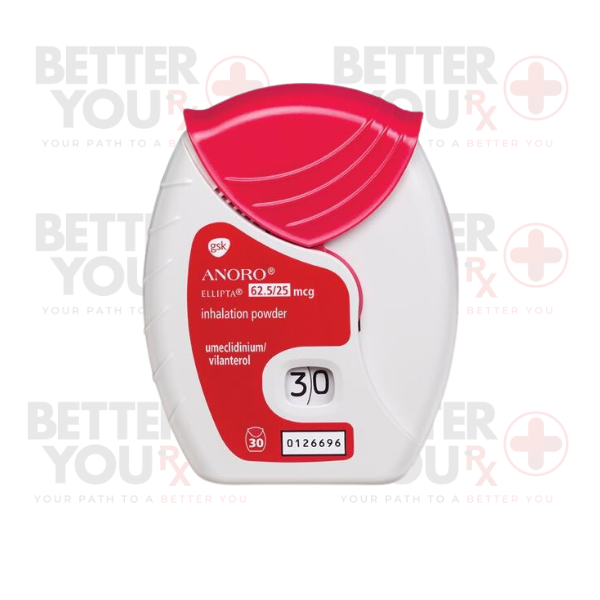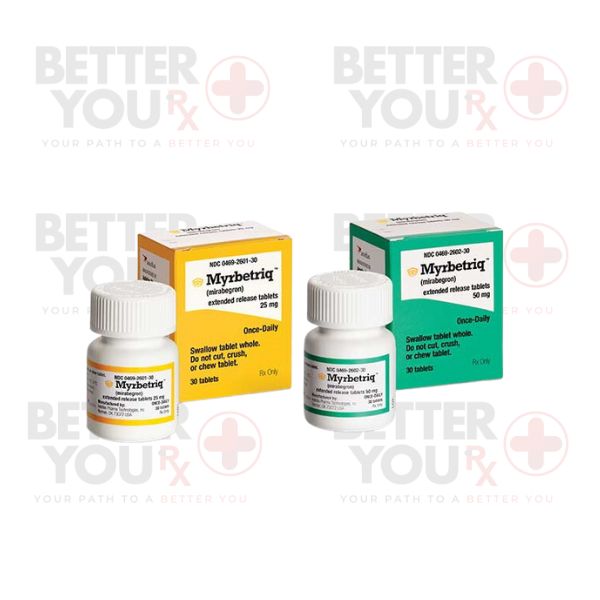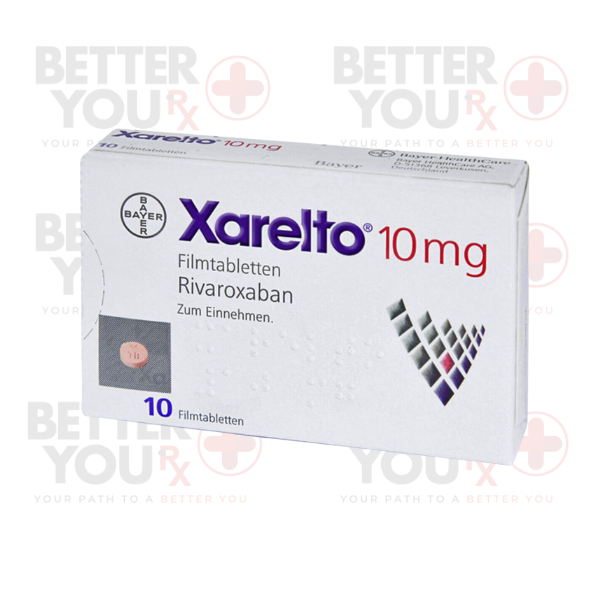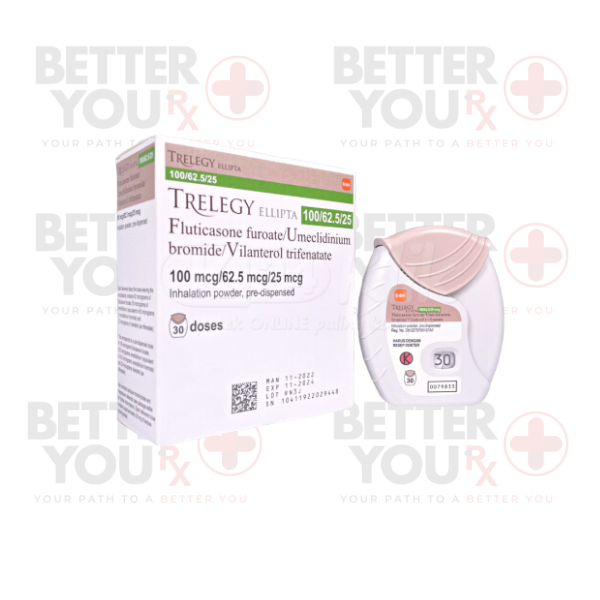| Usage |
Usage
Duloxetine is available in the form of delayed-release capsules, designed to release the medication in the intestine to prevent breakdown by stomach acids. These are the guidelines for its administration:
• When prescribed for depression, take duloxetine once or twice daily with or without food. For generalized anxiety disorder, diabetic neuropathy pain, fibromyalgia, or ongoing bone or muscle pain, take it once daily with or without food. Be consistent with your dosing time.
• Carefully follow the directions on your prescription label, and if there's anything you don't understand, consult your doctor or pharmacist.
• Take duloxetine exactly as prescribed. Do not alter the dosage, frequency, or duration without your doctor's guidance.
• Swallow the delayed-release capsules whole; avoid splitting, chewing, or crushing them. Do not open the capsules or mix their contents with liquids or food.
• Your doctor may initiate treatment with a low dose, then adjust it after one week. Duloxetine can help manage your symptoms but won't cure your condition.
• It may take 1 to 4 weeks or more before you experience the full benefits of duloxetine.
• Continue taking duloxetine even if you start feeling better. Do not discontinue it without consulting your doctor, who will likely taper your dose gradually.
• Abruptly discontinuing duloxetine may lead to withdrawal symptoms, such as nausea, vomiting, diarrhea, anxiety, dizziness, fatigue, headaches, numbness or tingling in the hands or feet, irritability, sleep disturbances, sweating, and nightmares. Inform your doctor if you encounter any of these symptoms during a dose reduction.
|
| Side Effects |
Side Effects
Duloxetine can lead to side effects. If any of these symptoms are severe or persist, inform your doctor:
• Nausea
• Vomiting
• Constipation
• Diarrhea
• Heartburn
• Stomach pain
• Decreased appetite
• Dry mouth
• Increased urination
• Difficulty urinating
• Sweating or night sweats
• Dizziness
• Headache
• Tiredness
• Weakness
• Drowsiness
• Muscle pain or cramps
• Changes in sexual desire or ability
• Uncontrollable shaking of a body part
Certain side effects are more serious. If you experience any of the following, or those listed in the IMPORTANT WARNING or SPECIAL PRECAUTIONS section, contact your doctor immediately or seek emergency medical attention:
• Unusual bruising or bleeding
• Discomfort in the upper right part of the abdomen
• Abdominal swelling
• Itching
• Yellowing of the skin or eyes
• Dark-colored urine
• Loss of appetite
• Extreme fatigue or weakness
• Confusion
• Flu-like symptoms
• Elevated body temperature, perspiration, mental confusion, rapid or irregular heartbeat, and intense muscle rigidity.
• Fever
• Blisters or peeling skin
• Rash
• Hives
• Difficulty breathing or swallowing
• Enlargement or puffiness of the face, throat, tongue, lips, eyes, hands, feet, ankles, or lower legs.
• Hoarseness
Duloxetine may also produce other side effects. Contact your doctor if you encounter any unusual problems while taking this medication.
|
| Storage |
Storage
Store this medication in its original container, tightly sealed, and keep it out of children's reach. Store it at room temperature, away from excessive heat and moisture (avoid bathroom storage). When you no longer need this medication, ensure safe disposal to prevent consumption by pets, children, or others. Do not flush it down the toilet. Instead, the safest way to dispose of it is through a medicine take-back program. You can discuss this with your pharmacist or contact your local garbage/recycling department to inquire about take-back programs in your area. Since various medication containers, such as weekly pill organizers, and those for eye drops, creams, patches, and inhalers, are not child-resistant and can be easily opened by young children, it's essential to:
• Always secure safety caps.
• Store the medication in a secure location that is elevated and out of sight, away from children's reach.
This will help protect young children from accidental poisoning.
|
| Special Precaution |
Special Precaution
Before beginning duloxetine treatment, it is crucial to communicate the following information to your doctor and pharmacist:
1. Allergies and Ingredients: Inform them if you have any allergies to duloxetine, other medications, or any ingredients in duloxetine delayed-release capsules. You can request a list of these ingredients from your doctor or pharmacist.
2. Medications and Supplements: Share a comprehensive list of all prescription and non-prescription medications, as well as vitamins and supplements you are currently taking or plan to take. This includes specific mentions of anticoagulants (e.g., warfarin), antidepressants, antihistamines, pain relievers (e.g., ibuprofen), and other medications for various conditions. Many drugs can interact with duloxetine, even if they are not on this list, so it's crucial to provide a comprehensive overview to your healthcare provider.
3. Nutritional Supplements and Herbal Products: Inform your healthcare provider about any nutritional supplements or herbal products you are using, especially those containing St. John's wort or tryptophan.
4. Alcohol and Substance Use: Disclose any history of alcohol consumption, including excessive or past use. Also, share any history of using street drugs or overusing prescription medications.
5. Medical History: Inform your doctor if you have a history of certain medical conditions, such as a heart attack, high blood pressure, seizures, coronary artery disease, or heart, liver, or kidney disease. If you have diabetes, discuss the severity of your condition with your doctor to determine if duloxetine is suitable for you.
6. Pregnancy and Breastfeeding: If you are pregnant, planning to become pregnant, or breastfeeding, notify your healthcare provider, especially if you are in the final months of pregnancy. Duloxetine may have implications for newborns if taken late in pregnancy.
7. Surgery: If you are scheduled for surgery, including dental surgery, inform your surgeon or dentist that you are taking duloxetine.
8. Drowsiness and Coordination: Be aware that duloxetine may cause drowsiness, and dizziness, or affect your judgment, thinking, or coordination. Avoid driving or operating machinery until you are familiar with the effects of this medication on your body.
9. Alcohol Consumption: Discuss with your doctor the safe consumption of alcoholic beverages while on duloxetine, as alcohol can increase the risk of serious side effects.
10. Orthostatic Hypotension: Be cautious of orthostatic hypotension, which can occur when getting up too quickly from a lying position, especially when starting duloxetine or with a dosage increase. Take your time getting out of bed to prevent this.
11. Blood Pressure: Recognize that duloxetine may lead to high blood pressure. Your blood pressure should be monitored before and during treatment.
12. Eye Health: Duloxetine may trigger angle-closure glaucoma, a condition with sudden eye pressure increases. Discuss an eye examination with your doctor before starting the medication. If you experience symptoms such as nausea, eye pain, changes in vision, or eye swelling, seek medical attention immediately.
By providing this information to your healthcare provider, you can ensure the safe and effective use of duloxetine and minimize potential risks.
|
| Important Warning |
Important Warning
A limited number of people, especially children, adolescents, and young adults up to the age of 24, who took part in clinical trials with antidepressants such as duloxetine (often called "mood elevators"), exhibited suicidal tendencies. This includes thoughts of self-harm or suicide, as well as planning or attempting to do so. Those in this age group who take antidepressants to manage conditions like depression or other mental health issues may face a higher risk of developing suicidal thoughts or behaviors compared to those who do not use antidepressants for these purposes.
The precise extent of this risk and how it should factor into the decision-making process for prescribing antidepressants to children and teenagers remain subjects of debate among experts. Generally, individuals under 18 years old typically do not use duloxetine. Nevertheless, there are exceptions, and in certain cases, a doctor may determine that duloxetine represents the most suitable treatment for a child's condition.
It's essential to be aware that your mental well-being can undergo unexpected changes when taking duloxetine or similar antidepressants, even if you are an adult aged 24 or older. These changes can manifest, regardless of whether you have a preexisting mental illness, or even if you are taking duloxetine for a different medical condition. Such shifts in mental state may include an increased risk of suicidal thoughts or behaviors, particularly at the onset of treatment or whenever dosage adjustments occur.
It is crucial for your family or caregiver to maintain regular check-ins with you and to be aware of symptoms that may indicate a serious issue, so they can promptly contact the doctor if you are unable to seek help on your own. Your healthcare provider will schedule frequent appointments to monitor your progress, especially at the outset of your treatment. Ensure that you attend all scheduled office visits with your doctor.
Regardless of age, before commencing antidepressant therapy, you, your parent, or your caregiver should engage in a discussion with your doctor regarding the potential risks and benefits of using an antidepressant to manage your condition versus alternative treatments or no treatment at all. This conversation should also encompass the heightened risk of suicidal thoughts or behaviors associated with depression or other mental health disorders, particularly if you or any family member has a history of bipolar disorder, mania, depression, or suicidal thoughts or attempts. Collaboratively, you and your doctor will determine the most appropriate course of treatment for your unique situation.
|










Reviews
There are no reviews yet.